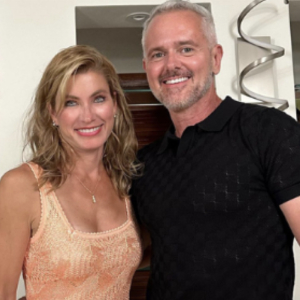No one gets into real estate to suffer career-ending, failure-to-launch syndrome. You got your license to be successful in real estate and take your life to the next level — whether that was this morning, last year, or a decade ago. Maybe you wanted to be free from financial stress or the tyranny of your old job. Most of all, you got into real estate to create the life of your dreams.
Becoming a successful agent is simple but not easy. You must learn to help enough people at a high enough level to reach your goals by helping your clients achieve their goals. This guide will teach you how to be a successful real estate agent with ten strategic steps. We used this exact plan to sell hundreds of homes in our city before becoming full-time real estate coaches — and thousands of our coaching clients have used this proven system to become successful agents. Let’s get started!
Summary
- Step 1: Quantify what success means to you
- Step 2: Create a daily success schedule
- Step 3: Learn to be mentally tough
- Step 4: Practice your practice
- Step 5: Lead with lead generation
- Step 6: Avoid becoming a secret agent
- Step 7: Always have an ‘It’s my pleasure’ attitude
- Step 8: Use the best scripts
- Step 9: Share polished presentations
- Step 10: Hire an experienced real estate coach
Step 1: Quantify what success means to you
When we ask agents what they think they need to do to become successful, we usually get the same answer: “I just need to do more. More deals, a higher sale price, more units.”
But this isn’t a definitive answer. In fact, it’s kind of lazy. If you never define what success means to you, you’ll keep spinning your wheels chasing someone else’s idea of success. In our experience, this is a recipe for burnout. To truly achieve success, you need to quantify your financial goals.
Here is a simple two-step process to quantify your financial goals:
Create specific financial goals – don’t be afraid to think big!
What is real estate supposed to DO for you and your family? Is it to replace your existing income? Is it to supplement your spouse’s income? Are you the sole provider? Is it meant to take your lifestyle to the next level? Any of these things may be true for you, but if you want to become successful, you’ll need to figure out exactly how much money you’ll need to earn to make it happen.
Let’s say your financial goal is to earn $100,000 to take your lifestyle to the next level. To earn that much, you need to subtract your expenses and adjust your goal accordingly.
Here’s a quick example of what that might look like:
| Gross commission income (GCI) | $100,000 |
| Lead generation & marketing costs | -$8,000 |
| Brokerage fees | -$12,000 |
| Miscellaneous expenses | -$2500 |
| Total expenses | -$22,500 |
| Net commission income (NCI) | $77,500 |
| GCI required to earn $100,000 | $122,500 |
Create an action plan to reach your financial goal
Now that you have a specific financial goal in mind, the next step is to create an action plan to reach it. Saying you want to make $100,000 is just a dream. Your action plan is what will make it a reality.
To create your action plan, turn your dream of making $100,000 into a S.M.A.R.T. goal. It needs to be Specific, Actionable, Realistic, and Timely. Studies show that SMART goals are far more likely to produce success.
Here’s an example of how you can transform your $100,000 dream into a S.M.A.R.T. goal:
Step 2: Create a daily success schedule
To be successful in real estate, you need to do what you don’t want to do when you don’t want to do it at the highest level possible. You’ll never want to negotiate a tough deal, ask a seller to reduce their price, call a FSBO or tell a buyer they lost a deal. To make doing the things you don’t want to do easier, create a daily success schedule of things you know will move the needle for your business and commit to doing them each day.
Here are our suggestions for daily activities that we know will lead to success in real estate:
- Review your finances
- Make contact (a conversation with a decision-making adult about real estate) with at least the same number of people as the number of transactions you’re striving to close this year
- Practice furiously-fast lead follow-up on 100% of your leads
- Show gratitude to those you care about
- Set a new, prequalified appointment before noon
- Doorknock or call at least one expired seller listing
- Speak with all pending clients with transaction updates
- Spend at least one hour working out
- Meet three new people and talk about real estate
Here is a quick rundown of how to create a daily success schedule that works for you:
Never negotiate with your success
Do what your success schedule calls for. Remember that consistent action equals consistent income. Don’t negotiate with your success. Whenever you say anything that sounds like the below phrases to yourself, you’re negotiating with your own success:
- “I can’t do my calls this morning because I don’t have the phone numbers organized.”
- “I’ll do it on Friday when I have a 3-hour slot in my calendar.”
- “Maybe that overpriced listing will sell by next weekend. I’ll just wait and see what happens.”
- “Past clients will call me when they’re ready. I don’t want to bug them.”
When we hear these phrases as coaches, we say: ‘No you won’t. You won’t make the calls on Friday. You won’t get the overpriced home sold this weekend, and don’t be mad when (not if) a past client lists with someone else!”
The key here is not to allow your revenue-generating activities to be ‘negotiable’ or ‘optional.’
If you know that every time you talk to 10 FSBOs, you get two listing appointments, schedule calling FSBOs regularly and stick to it! This is a major differentiator between struggling agents and successful agents: Successful agents stick to their success schedules because they see results.
Step 3: Learn to be mentally tough
It takes mental toughness to be successful in any business, but especially in real estate, where every day can be different, many things are out of your control, and the rules are changing constantly.
Mental toughness is your ability to catch yourself when you’re feeling stressed, out of control, weak or frustrated. (Not that that ever happens in real estate! 😉) People have different degrees of mental toughness naturally.
You can’t control how you initially feel about something, but you can control how you react to situations and conversations. Here is my pro tip and favorite way to increase mental toughness:
Step 4: Practice your practice!
It’s called a real estate practice for a reason. This means that every day, in every way, you are actively pursuing success, making yourself more skilled, more professional and more effective for your clients and prospects.
We have found that the more you know about key drivers of your market, the more likely you are to talk about real estate with prospects, customers and clients. Remember that knowledge equals confidence and ignorance equals fear. The more knowledge you have, the more business you’ll do, because you’ll have the ability to help more people with their real estate needs! It actually is that simple!
Let’s take a look at the most important things for you to become an all-out specialist in:
Know the key drivers of your real estate market
Review what’s happening for 20 minutes every day, and you’ll spot future trends, be literate on the facts instead of speculating, guessing, or falling victim to salacious headlines, and be a leader in your town. Be the go-to real estate advisor because you always have the facts. What should you know off the top of your head?
- Today’s 30-year Fixed and Adjustable Rate Mortgage rates.
- Is inventory rising, falling or staying the same where you sell homes?
- Are sales up or down, year over year, month over month?
- How long does it take to sell a home in your market?
- Are the average days on market increasing, decreasing or staying the same?
- What is the list-to-sell price ratio where you’re selling homes?
- Is it the same city-wide or does it depend on the zip code?
Wondering how you can have all those facts on the tip of your tongue every day? There are several fantastic, go-to resources that make it easy! My favorites are: Altos Research and your MLS hotsheet (personalized for your specific areas).
Step 5: Lead with lead generation
Leads come from two sources: people you know and people you don’t. To be a successful real estate agent, you must pursue both. People you know are your friends, past clients, and people in your personal and professional sphere of influence.
People you don’t know are everyone else, but realize that many of them are easier to identify, will transact more quickly and are more motivated and qualified today than people in your personal database. For this reason, your business plan should call for the pursuit of both categories!
Related articles
Step 6: Avoid becoming a secret agent
One of our coaches famously said, ‘Secret agents have skinny kids!’
You must talk about real estate all the time to everyone you know. When you’ve followed step four, you’ll have plenty to talk about!
We have coaching clients with lots of pending sales where they found the buyer for a would-be seller and put the deal together 100% through matchmaking with people in their database. Know who in your network wants what and create the deals!

“Greg and I have found a passion for playing matchmaker with our buyers and sellers. When someone comes to us with what they are looking for, we don’t waste time exhausting all resources. It may seem simple since we all know what to do but actually doing it can sometimes be inconvenient. There isn’t any secret to success with this. It’s taking the initiative and finding what they are looking for instead of scrolling the MLS and praying something comes on the market soon!”
Step 7: Always have the ‘It’s my pleasure’ attitude
Always answer any real estate inquiry with: ‘Yes, it would be my pleasure to help you with that!’
Even if you’re not 100% sure or even 80% sure what to do next. Your job is to be of service. If you get stuck, ask for help from your broker, your coach, your mentor or an agent with more experience. This is how you learn. Never say ‘no, that’s not in my wheelhouse’. Your job is to earn while you learn. If something is truly a step too far for your current skill set, refer the prospect to another agent or co-list with them.

“When you say “yes, I’ll help you with that” you are creating a level of accountability for yourself to perform; I mean nobody wants to look like a schmuck on purpose, right? So by deciding to make that commitment, a natural byproduct of this (with enough persistence) is becoming exposed to new opportunities that you would have otherwise experienced. That is exactly what happened to me and I landed multiple commercial/mixed-use property listings as a result — and I never sold CRE before!”
Step 8: Use the best scripts & presentations
Scripts work. Every professional you know uses one, from the pilot on your plane to the doctor you’re seeing next week to your kid’s teacher starting out their day, scripts are there to keep you on track. To make your scripts work for you, memorize, internalize and personalize them. If you’re new to real estate scripts, here are a few resources to get you started:
Related articles
Step 9: Share polished presentations
Create and use proven and ‘unique to you’ listing presentations, buyer presentations and pre-listing packages. Don’t just use the same one as everyone else in your brokerage. Your presentations should clearly demonstrate your value, answer the question “why you”” versus another agent, and end with a signature on either a listing contract or a buyer agreement. Professional, competitive agents are very clear on this!
If you want your presentations to stand out, try using a “smart” presentation with Highnote. You can use one of their proven templates created by top-producing agents or have their marketing experts create a custom presentation just for you. Highnote listing presentations and tools are all fully digital and easily customizable with videos, links, and even Matterport tours.
Step 10: Hire an experienced real estate coach
Don’t reinvent the wheel. Your job is not to build a better mousetrap; it’s to help as many people as possible achieve their real estate goals so you can achieve yours. The best way to do this is to hire a coach with a track record of success as a coach and not just as an agent.
Are you ready to take your real estate business to new heights? We’re proud to provide premium real estate coaching and training to over 4,000 agents nationwide. Our powerful programs provide market-tested strategies, systems, and cheat sheets to put your business into overdrive. Visit us below to find a coaching plan that’s right for you.
How to become a successful real estate agent: the full picture
To become a successful agent, you need to focus on the things that make you money in real estate, not on things that are costly to your time and money and are speculative. Memorize and live the list of income-producing activities: Lead generation, furiously fast lead follow-up, pre-qualifying, presenting, negotiating and closing. Then lather, rinse and repeat! Everyone wants to hit the easy button, but it’s not actually plugged into anything! Every day, you are either self-employed or self-unemployed, depending on the choices you make with your time. Choose wisely.












